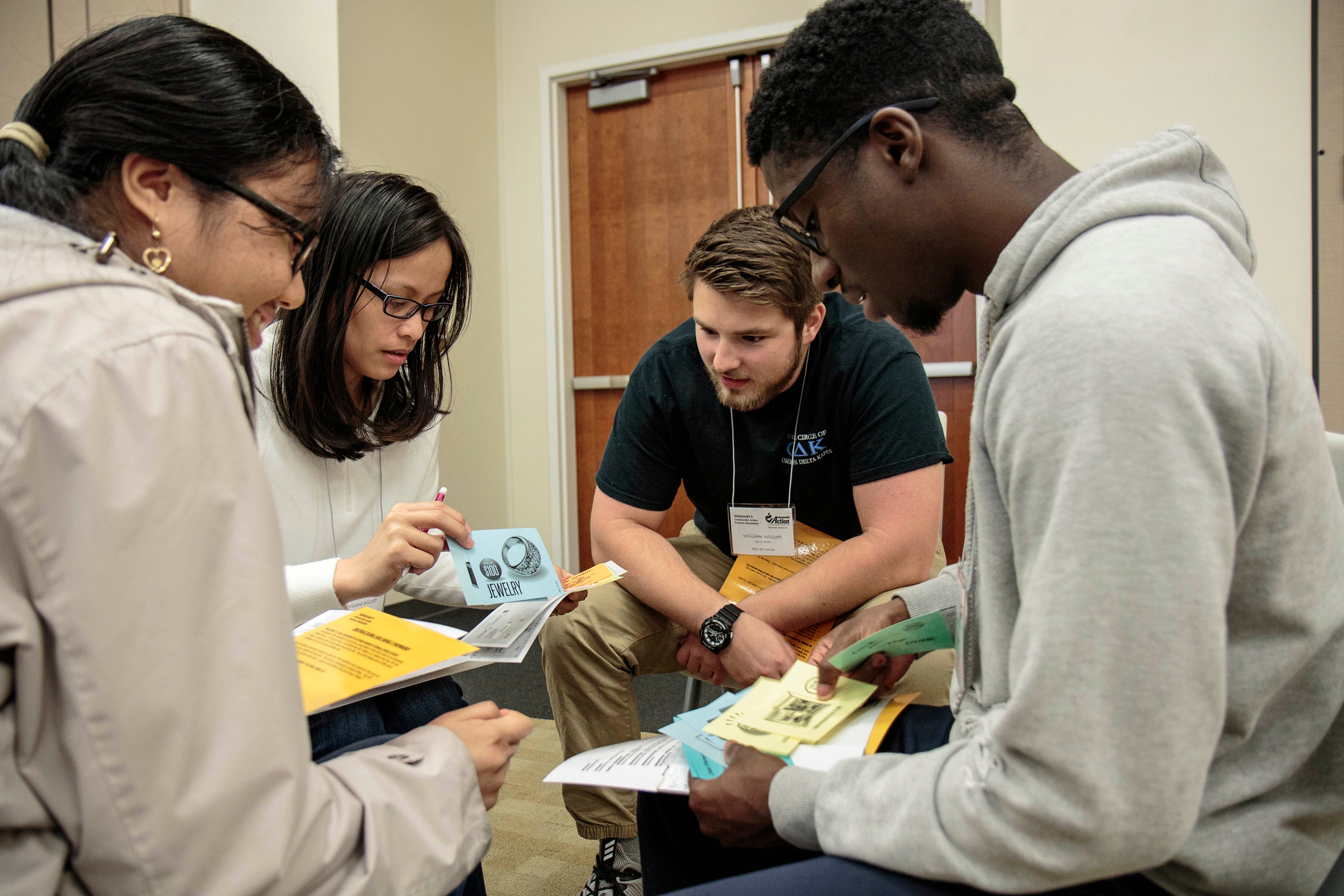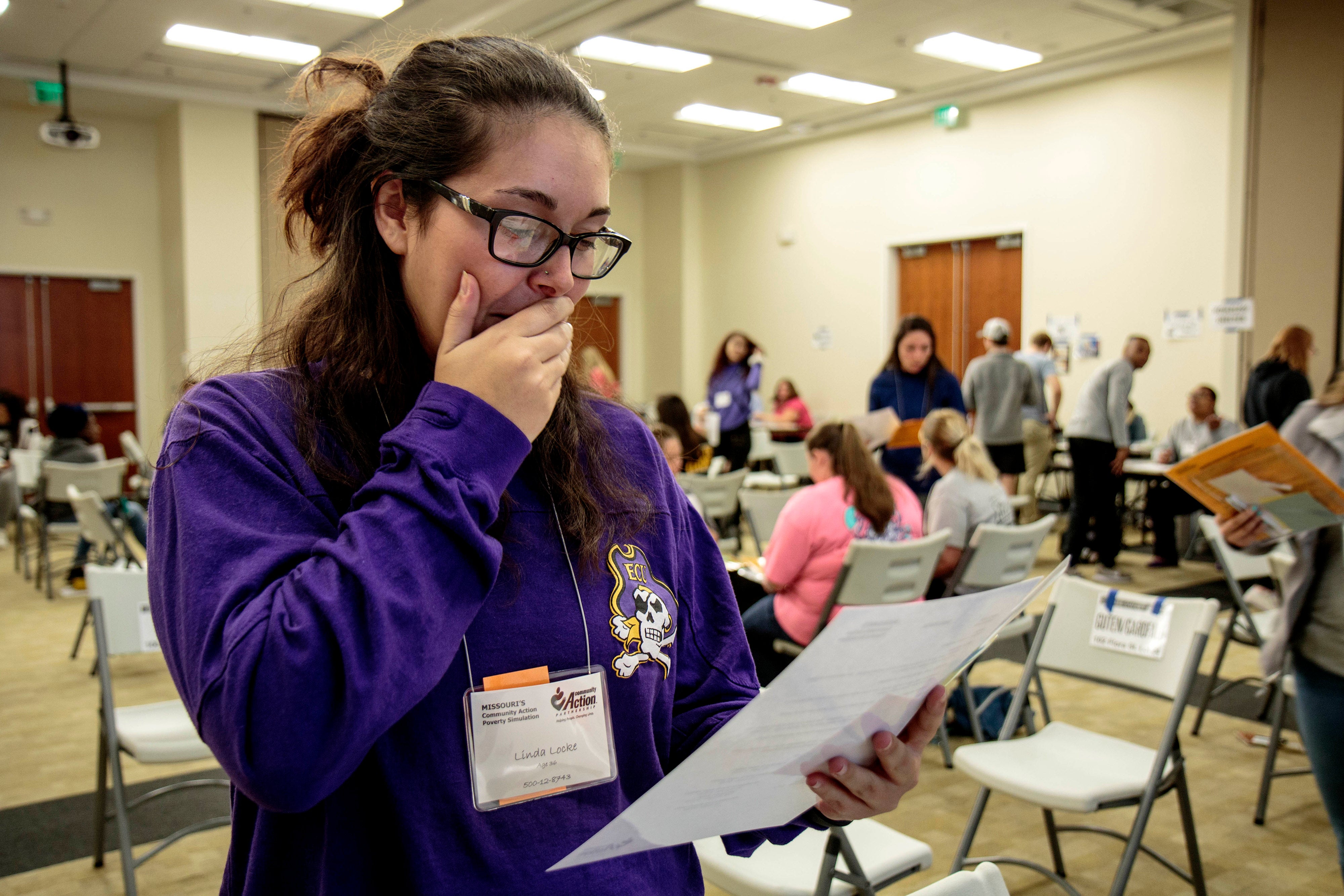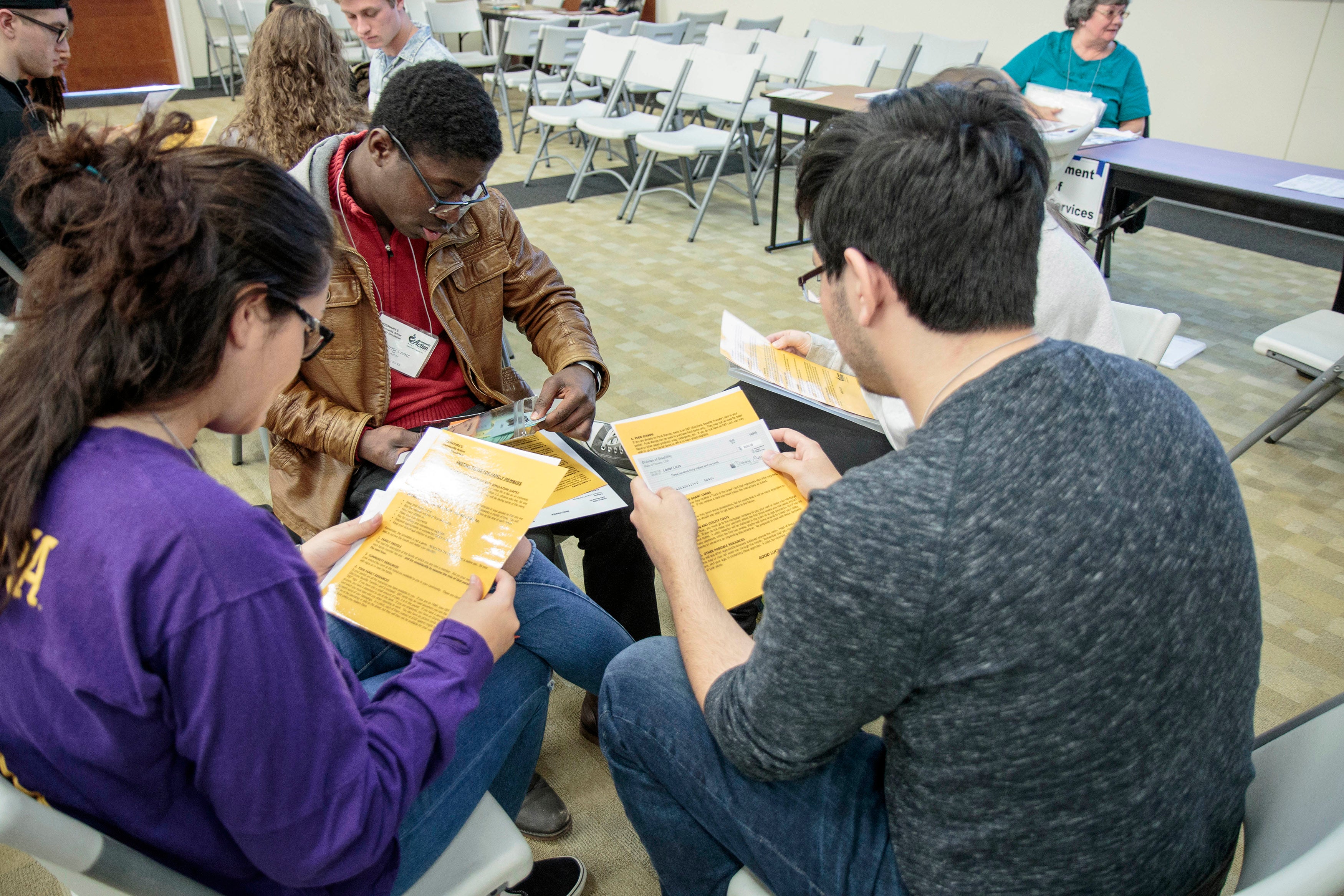Simulation brings awareness about living in poverty
About 50 East Carolina University students recently assumed the role of a family member living in poverty while juggling monthly bills, buying food or going to the doctor.
The students took part in a community action poverty simulation on March 16 at the East Carolina Heart Institute at ECU. The simulation was led by Tamra Church, a teaching instructor in the College of Health and Human Performance’s Department of Health Education and Promotion, Kim Werth, a counselor in the School of Dental Medicine, and the Center for Leadership and Civic Engagement. Courtney Williams, a master’s student and graduate teaching assistant, was instrumental in planning, organizing and volunteering in the simulation as well as overseeing registration, lunch, snacks and community resource tables.

Students – most from a health behavior theory class in the Department of Health Education and Promotion – portray family members living on a budget in a recent poverty simulation held in the East Carolina Heart Institute at ECU. (Photos by Josh Vaughan)
Church’s students are pre-health professionals and many are preparing for graduate school in physician assistant studies, occupational therapy, physical therapy, medicine, nursing or dentistry. Other graduates will go into the workforce where they will interact with people and patients from all walks of life.
“It was an opportunity to put themselves in the shoes of someone experiencing poverty,” Church said. “My goals for the simulation were to change beliefs about people experiencing poverty, increase students’ empathy towards people living in poverty and encourage them to get involved in more civic engagement.”
In the simulation, students were assigned to a family unit ranging from a single parent without a car to an elderly person having to pay for heat and medication for a month. The students sometimes faced unexpected challenges such as a death in the family or a break-in at their home. They interacted with service providers including employers, bankers, grocers, public schools or police officers portrayed by 14 volunteers from the School of Social Work, Pitt County Health Department and community.
“The poverty simulation accurately demonstrated the roller coaster of life that people in poverty have to live to get by day to day,” said Harlee Rowe, a public health studies major. “It was a shock of reality to see how much needs to be changed to help these people in need.”
Emmanuel McLeod, who is also in the public health studies program, said the activity was an eye-opening experience. “It has helped me to understand the daily lives they may face, and how the majority of the things they go through are out of their control,” McLeod said. “Despite this, we can reach out as a community and support those who need it.”
The simulation also taught students about available resources in the community.
After the event, some students said they planned to start having conversations about poverty while others planned to volunteer or start writing local government about issues.
“It changed my perception of how families in poverty deal with daily life struggles (that) the people who are not in poverty never have to think twice about,” said public health studies student Angela Bracco.
Church plans to offer the simulation each semester.
-by Crystal Baity, ECU News Services

